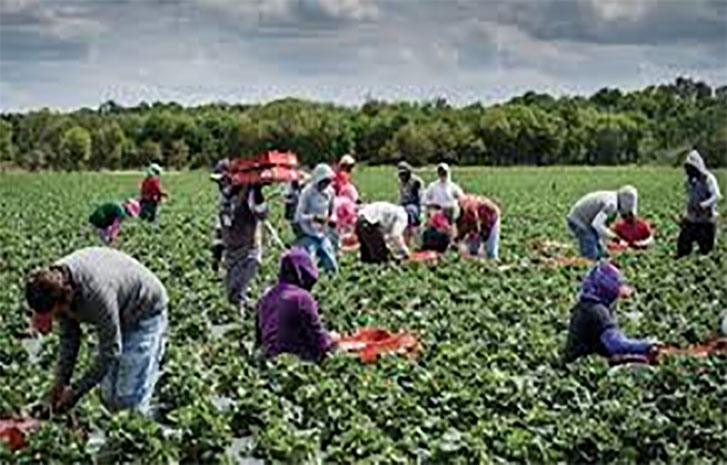In a bid to meet its commitment to the Comprehensive Africa Agriculture Development Programme (CAADP) for agricultural development, Kwara Government is set to digitise farmers’ data collection.
Mr Abdulquawiy Olododo, the Special Adviser to Gov. AbdulRahman AbdulRazaq on Agriculture, said this on Tuesday in Ilorin at a Joint Sector Review and Biennial Review Report on the implementation of CAADP.
The Review was organised by Public Financing of Agriculture (PFA) being funded by ActionAid Nigeria, and implemented in six states and the Federal Capital Territory (FCT).
Olododo stressed the need for data to enable the state to meet the CAADP commitment of allocating 10 per cent of its annual budget to agriculture to meet six per cent annual growth in the sector.
“For us to meet the CAADP commitment of 10 per cent of annual budget, we have to plan and for us to plan, we need data.
“Data is the primary foundation upon which we can actualise the commitment.
“If we don’t have adequate data to plan, how do we want to make necessary provisions for what we need to do?
“Even from our agriculture transformation plan that we unveiled, the first programme is the farmers’ data bank because we know the importance of having a data bank that we can analyse and harness data from.’’
According to him, from that we can now begin to see how we can meet up with the commitment of CAADP and see how it can be achieved before 2025.
The special adviser added that credible and reliable data was also needed to roll out any intervention programme by the government.
“It is not as if we do not have data in the state, but some are not reliable, there are issues with how some were collated in the past.
“Now, we are trying to update the existing data to be packed by technology because that is one of the ways that we can ensure its credibility,’’ Olododo said.
PFA Project Coordinator in Kwara, Mr Abdulrahman Ayuba, said the joint sector review was a key instrument for promoting mutual accountability.
“It aims to assess how well state and non-state stakeholders implemented pledges and commitments stipulated in the CAADP compacts.
“It creates a platform to assess the performance and results of the agriculture sector and in turn assist government in setting sector policy and priorities.
“We are holding this State Level Dialogue on the implementation of CAADP for the purposes of agricultural transformation, wealth creation, food security and nutrition, economic growth and prosperity for all,’’ he said.
Ayuba added that while the commitment by the stakeholders was commendable, it had been observed that the strategy and procedure had not taken all stakeholders into account to ensure effective engagement and participation
“In Nigeria for example, there has been a challenge of carrying all stakeholders along, especially at the state level in the Biennial Review (BR) process.’’
He said that other challenges include lack of awareness among stakeholders and the challenge of data collection to feed into the BR report.
The News Agency of Nigeria (NAN) reports that the review meeting was attended by Small Scale Women Farmers of Nigeria (SWOFON) and representative of National Bureau of Statistics
Other attendees were the Ministries of Women Affairs and Social Development, Finance, Budget and National Planning, Agriculture, PFA Committee members and some Civil Society Organisations.


 Health1 week ago
Health1 week ago
 Business1 week ago
Business1 week ago
 Latest1 week ago
Latest1 week ago
 Health6 days ago
Health6 days ago
 Latest1 week ago
Latest1 week ago
 Football7 days ago
Football7 days ago
 Latest1 week ago
Latest1 week ago
 Education5 days ago
Education5 days ago
